Greek Grapes
Athiri
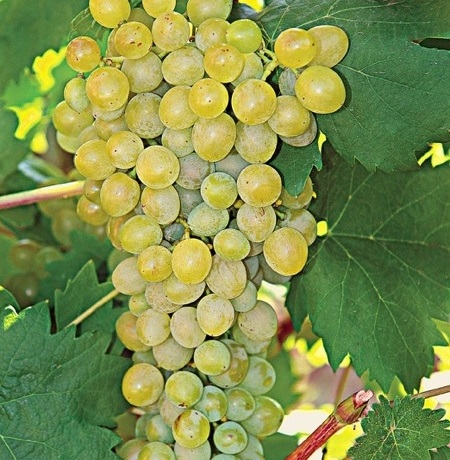
Athiri is an ancient white wine grape from the Aegean Sea.
It has been used for centuries to make excellent dry white wines.
The best wines comes from the high vineyards of PDO Rhodes.
Athiri Flavors
Citrus |
Apple |
Peach |
Pine |
Almonds |
Salinity |
Citrus, White Fruit, Pine, Almonds, and a mild touch of salinity are typical Athiri flavors.
Aegean Islands
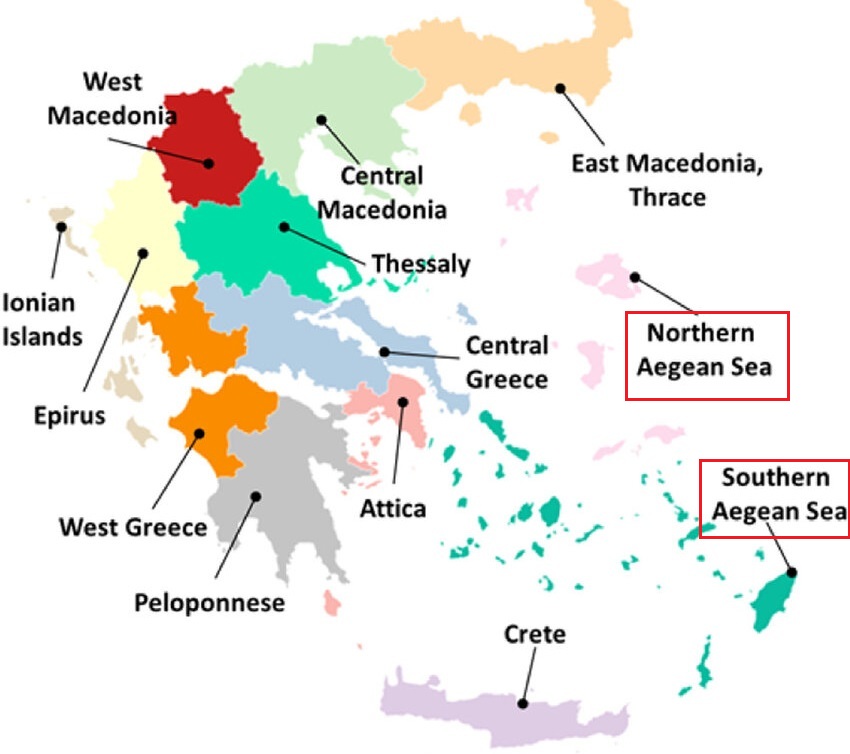
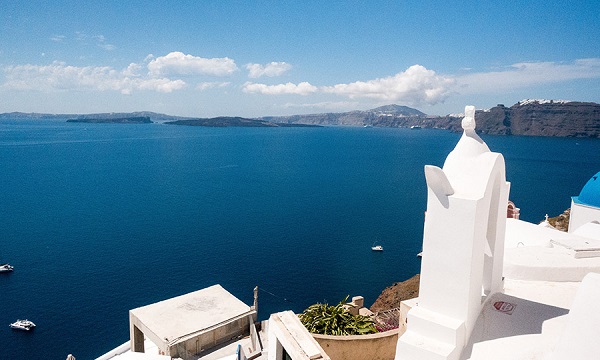
Black Grapes |
White Grapes |
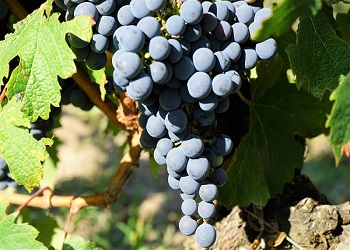
|
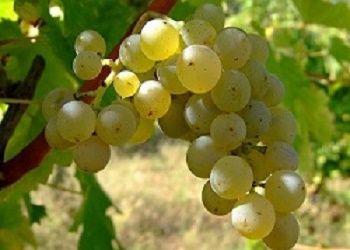
|
Soil |
Climate |
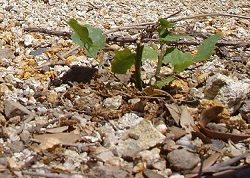
Schist. |
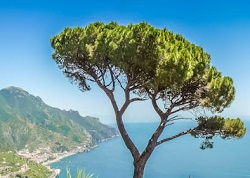
Mediterranean. |
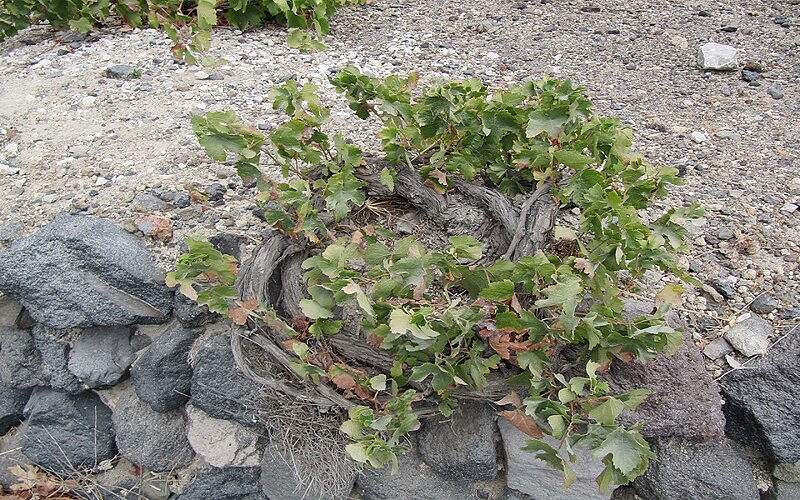
Santorini vines trained to the ground in a basket shape, to protect the grapes from heat and wind.
Aegean PDO Regions
Aegean Islands (East Mediterranean) has 5 PDO regions:
PDO Santorini (1971)
PDO Rhodos (1971)
PDO Lemnos (1982)
PDO Paros (1981)
PDO Samos (1970)
PDO Santorini (ΠΟΠ Σαντορίνη)
This picturesque island is one of Greece's most unique wine regions. Volcanic soil and strong winds contribute to the cultivation of grapes like Assyrtiko, which produces crisp, mineral-driven white wines with citrus and floral notes.
PDO Santorini allows for 85% Assyrtiko and 15% of Athiri and Aidani. However, most PDO Santorini is made from 100% Assyrtiko.
PDO Santorini has a unique profile, clearly showing the terroir. The wines are powerful and intense, bursting with sea-salt minerality. Not aromatic but steely with a depth of citrus fruit, and a high level of acidity and alcohol
PDO requirements:
Dry White from min 85% Assyrtiko + Athiri / Aidani.
Sweet White from min 51% Assyrtiko + Athiri / Aidani.
PDO Rhodes (ΠΟΠ Ρόδος)
Phylloxera existed on Rhodes, but had difficulties to spread in the a terrain. As a result, on the altitudes of Mount Attavyros there are numerous self-rooted Phylloxera immune vines of advanced age.
Rhodes is the leader and main source of Greek bottled-fermented sparkling wines. CAIR Brut is a famous sparkling wine produced by the local grape Athiri, using the French traditional method.
PDO requirements:
Red from min 70% Amorgiano + Mavrothiriko.
Rosé from min 70% Amorgiano + Mavrothiriko.
White from min 70% Athiri + Assyrtiko and Malagousia.
Amorgiano is the local name for the Mandilaria grape.
PDO Samos (ΠΟΠ Σάμος)
The White Muscat wine from Samos is often referred to as Muscat Samos since the grape is associated with the island.
Muscat is also found in four other Greece PDO wines: PDO Muscat of Rhodes. PDO Muscat of Cephalonia. PDO Muscat of Patras. PDO Muscat of Rio Patras.
PDO requirements:
Sweet White from 100% Muscat (Sun-dried).
Sweet White Fortified from 100% Muscat.
PDO Lemnos (ΠΟΠ Λήμνος)
Lemnos (Limnos) in the northern Aegean Sea is where the white grape Muscat of Alexandria is widely cultivated.
PDO requirements:
Dry White from 100% Muscat of Alexandria.
Medium-Dry White from 100% Muscat of Alexandria.
Medium-Sweet White from 100% Muscat of Alexandria.
Dry Red from 100% Limnio.
Sweet Red from 90% Limnio (sun-dried) and 10% Muscat.
Sweet Fortified Red from 90% Limnio and 10% Muscat.